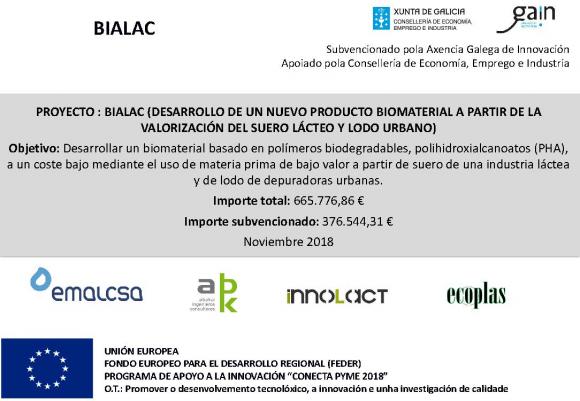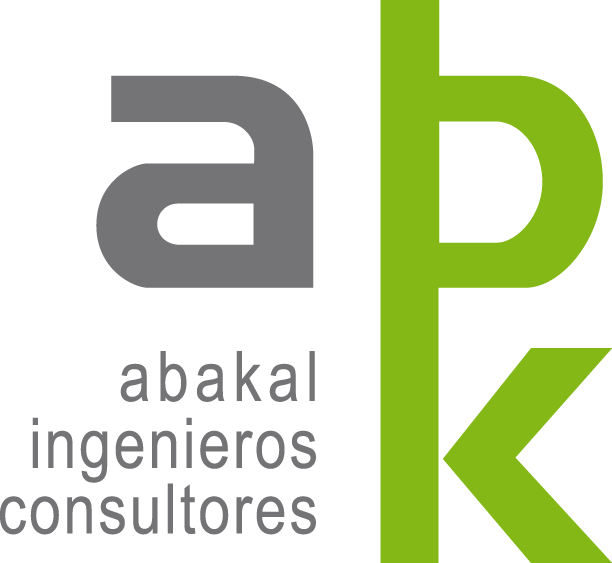BiALAC project, presentation of results
 The main objective of the project is to develop a biomaterial based on biodegradable polymers , polyhydroxyalkanoates (PHA), at a reduced cost through the use of raw materials of low value and difficult to recover for project participants, such as permeate from the ultrafiltration process in the dairy industry and sludge from urban treatment plants. The project will simultaneously reduce the production costs of biopolymers , enhance permeate and sewage sludge, and produce new 100% biodegradable food packaging formulations .
The main objective of the project is to develop a biomaterial based on biodegradable polymers , polyhydroxyalkanoates (PHA), at a reduced cost through the use of raw materials of low value and difficult to recover for project participants, such as permeate from the ultrafiltration process in the dairy industry and sludge from urban treatment plants. The project will simultaneously reduce the production costs of biopolymers , enhance permeate and sewage sludge, and produce new 100% biodegradable food packaging formulations .
During the first year of development of the project, the initial tasks of preparing the facilities to house the biopolymer production pilot plant, plant design and characterization of the permeate and sludge have been carried out. treatment plant, both from the physical-chemical point of view and with respect to its anaerobic digestion potential and the limiting factors of the production of volatile fatty acids, polymer precursors.
During the second year, the characterization studies of the permeate and sludge continued, the design of the pilot plant for the production of biopolymer was completed and installed in the factory of Quescrem , then proceeding with its start-up and adjustment of the process parameters.
During the third and last year of the project, the characterization studies of the permeate as food for the pilot plant continue and with the operation of the same for the production of volatile fatty acids and biopolymer. Controls of the operating process, sampling, analysis of the basic operating parameters of the reactors, etc. are carried out on a daily basis, keeping track of the entire process and operating conditions. Similarly, laboratory-scale co-digestion studies continue to better adjust the operating process of the plant. As it stabilizes and biopolymer production is achieved, extraction and purification processes are carried out. The characterization of the biopolymer then continues, evaluating its thermal and rheological properties, and the necessary formulation is made for the development of a biocomposite suitable for its application. Finally, the validation of the containers obtained from it is carried out.
This project has had a duration of 2 years and 4 months, beginning in May 2018 and ending in September 2020. Several entities have participated in the development of the project (Emalcsa , Ecoplas , Abakal Ingenieros and Innolact , with the collaboration of research groups of the Universidad da Coruña ), with a budget total of € 665,776.86.
This project has been subsidized by the Galician Innovation Agency, supported by the Ministry of Economy, Entrepreneurship and Industry, and co-financed by the ERDF (European Regional Development Fund) of the European Union.

